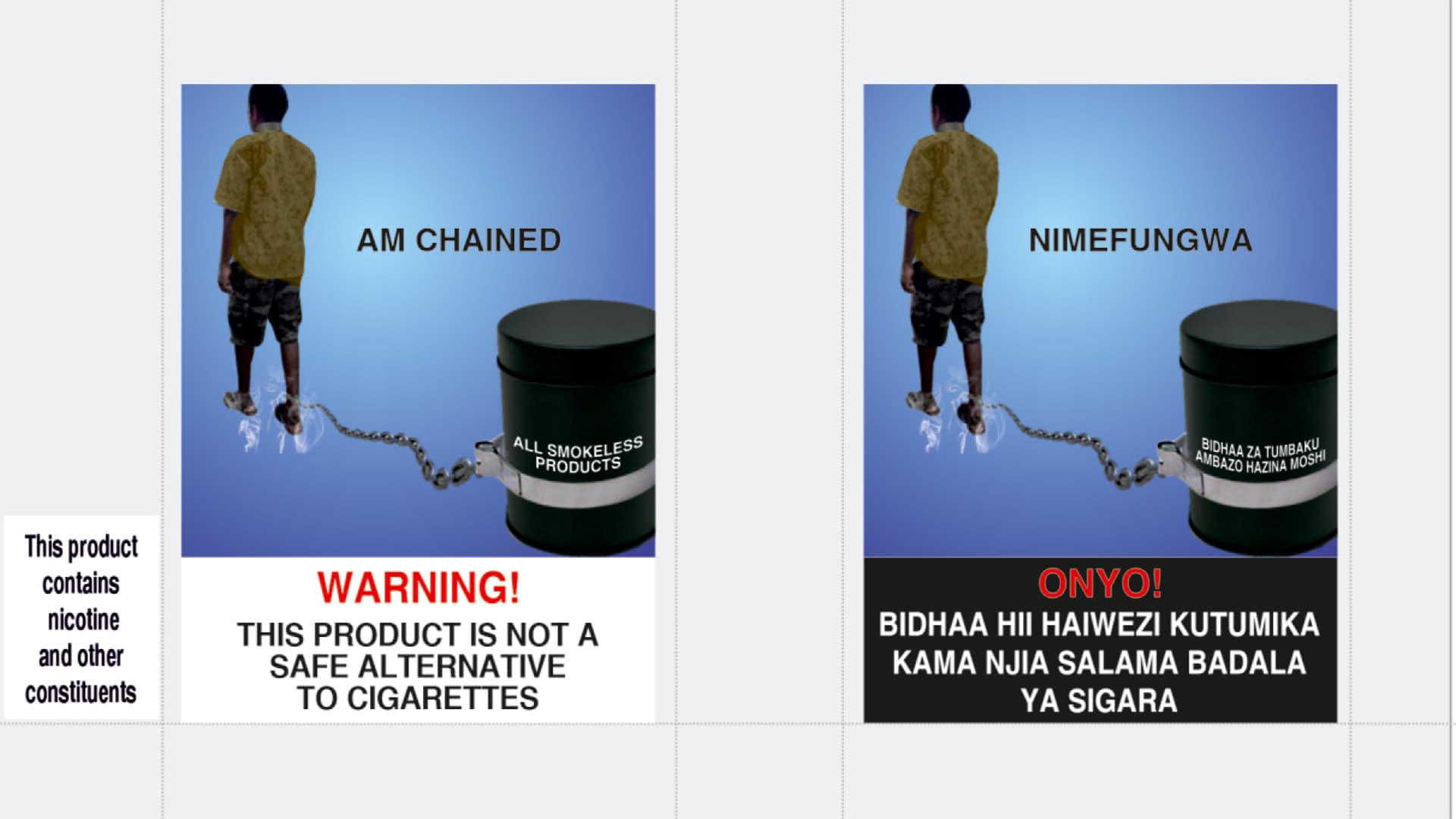The Kenyan government is proposing new graphic health warnings for nicotine pouches to increase awareness of the potential risks of the products as they gain popularity among the country’s youth.
The proposals for the new labels follow a joint investigation by The Examination, Africa Uncensored and The Guardian that found the government had previously weakened health warnings on the pouches after British American Tobacco threatened to pull investment from a new factory in the country’s capital.
Letters between British American Tobacco and the Kenyan Ministry of Health revealed the government yielded to the tobacco giant’s demand to sell its Velo nicotine pouches with significantly smaller health warnings and without mentioning potentially cancer-causing toxicants present in the products.
Health warnings on the products previously only warned that “this product contains nicotine and is addictive” but under the new proposals potential warnings will include messaging such as “the product is not a safe alternative to cigarettes” and “this product contains nicotine and other constituents.”
Proposed imagery includes a graphic of someone’s hands chained together while holding nicotine pouches or a man chained to a barrel labeled “all smokeless products.”

The new graphic health warnings, which also include updated warnings for cigarettes, have been developed by Kenya’s Cabinet Secretary for Health Susan Nakhumicha Wafula in consultation with the country’s Tobacco Control Board.
“There is an urgent need to introduce a new set of graphic health warnings to address the emergence of novel nicotine and other tobacco products,” the office of Kenya’s Principal Secretary for Public Health Mary Muriuki said in a statement to The Examination. “These warnings must be responsive and integrated into tobacco control programs to safeguard the health of Kenyans.”
The graphic warnings are designed to increase knowledge about the risks associated with tobacco use, deter initiation into tobacco, encourage people to quit and warn people who are unable to read about the dangers of the products, according to a government announcement.
Nicotine pouches are currently regulated under existing tobacco regulations in Kenya.
Under the terms of the country’s Tobacco Control Act, any tobacco product manufactured, imported, distributed or sold in Kenya must contain both text and graphic health warnings, but until now there have only been text warnings on nicotine pouches.
The proposed health warnings are being put out to a public consultation, which will happen across the country between May 2 and 8, 2024.
Fears over addicting a new generation
Public health advocates are concerned that the nicotine pouches could addict a new generation to nicotine. The product has become especially popular among the urban youth of Kenya, and particularly among girls, academic research shows.
The science around the health effects of nicotine pouches is still emerging, but there is a lack of independent research as most of the studies have been commissioned by the tobacco industry. Industry research says the products expose users to less toxicants than smoking, but concludes that more studies are needed to determine if they reduce the risk of disease.
The few independent studies that have been conducted on nicotine pouches have also revealed the presence of cancer-causing tobacco-specific nitrosamines (TSNAs) in most brands. TSNAs are compounds that form naturally when tobacco is processed, in this case when nicotine is extracted to add into the pouches.
Subscribe to our newsletter
Global health reporting, straight to your inbox
In its own research, BAT said the TSNAs are not found in “quantifiable” levels but scientists from Germany's Federal Institute for Risk Assessment said TSNAs potentially pose a health risk even at very low, not quantifiable, amounts
In response to The Examination’s investigation, BAT said its product’s labeling provides “important safety information” and that the language clearly states that all nicotine pouches are for adults only and should “never be used by those who are underage.” The company said the science of nicotine pouches is different from that of tobacco products, and this needs to be reflected in regulations.
“Like many other companies, we contribute to the public debate on issues that are important to our consumers, in particular tobacco harm reduction,” it added.

